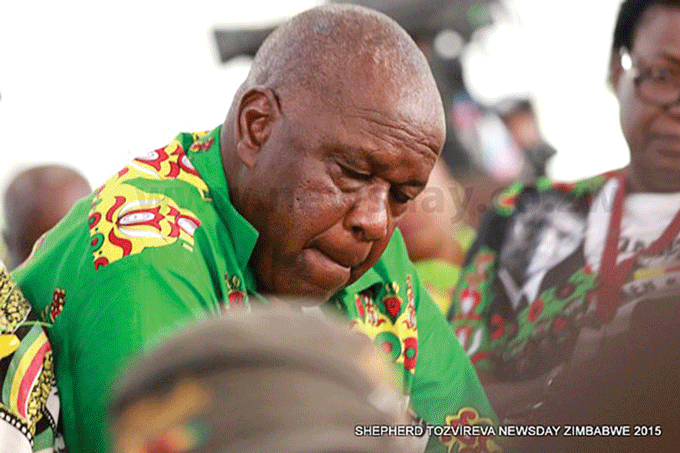
ON Monday this week, Zimbabweans were treated to the spectacle of Zanu PF’s Christopher Mutsvangwa, the party spokesperson, threatening civic society organisations (CSOs) for highlighting human rights abuses allegedly perpetrated by Chinese investors in the country.
The CSOs, Mutsvangwa fumed, were being used as conduits for regime change by the opposition Citizens Coalition for Change (CCC). This is despite the fact that the CSOs raised the concerns before the CCC was launched.
“We will take them to the (Zimbabwe) Human Rights Commission. We will take every constitutional avenue that exists in this country to protect the fairness of the investment arena in the country. We will not allow them to do what they have done in the political arena. They are agents of regime change. They want to be a substitute of the CCC if it fails,” he said.
“We argue as Zanu PF that Zimbabwe is open for business. As a party, we do not distinguish the origins of an investment. The companies which invest in Zimbabwe register their companies in Zimbabwe under the laws of the country. The moment they come to Zimbabwe, they become citizens like anybody else. If they are violating the laws, let them be taken to the courts.”
That was an extraordinary rant by a ruling party which is already in the process of drafting legislation to handpick the CSOs it likes to operate in the country under the controversial Private Voluntary Organisations Amendment Bill.
The crime by the CSOs was to express concerns over Chinese business operations that were causing displacements and damaging the country’s ecologically sensitive sites.
They asked the Zimbabwe government to engage with its Chinese counterparts to promote and protect the dignity of the Zimbabwean people against corporate injustice and human rights abuses.
“It is essential to listen to the real people in the affected communities. The Chinese ambassador should find time to tour the Chinese operations and observe working conditions. The Chinese investors in Zimbabwe should be accountable to local communities and open to public scrutiny starting with their contracts, their taxes and beneficial ownership,” they said.
- Chamisa under fire over US$120K donation
- Mavhunga puts DeMbare into Chibuku quarterfinals
- Pension funds bet on Cabora Bassa oilfields
- Councils defy govt fire tender directive
Keep Reading
This is not the same as asking the Chinese businesses to leave the country, and Mutsvangwa clearly missed the point.
Most of China’s investment in Africa is centred around resource-rich nations such as Nigeria, Angola and the Democratic Republic of Congo. In comparison, Zimbabwe accounts for just 0,75% of Africa’s trade with China.
But the country has become too enveloped by Chinese influence: political, military and economic class. Unconfirmed data shows that Chinese investments now make up nearly 64,5% of the southern African country’s economy. And the Chinese have become arrogant as a result.
In recent times, there have been numerous cases of rampant abuse of local labour by Chinese employers, including a Chinese miner shooting dead a worker for demanding outstanding wages.
Their actions in communities show that Chinese companies do not pay heed to local laws or customs.
Many of their operations, especially in the diamond-rich Marange area, are opaque and we dare say they would not stand close scrutiny.
On the trade deal between the two countries, the bilateral agreement has left Zimbabwe in servitude to the Chinese.
Zimbabwe adopted a “Look East” policy to focus on attracting Chinese investment, but then so has pretty much the rest of the world. And most countries did not have to give up their dignity, oppress their people or give the Chinese a free rein at their national resources.
In Zimbabwe, the incompetence of the Zanu PF government did, and that it the problem. For the Chinese, we argue that they must work with communities in which they run their businesses, instead of antagonising the locals at the behest of politicians.











